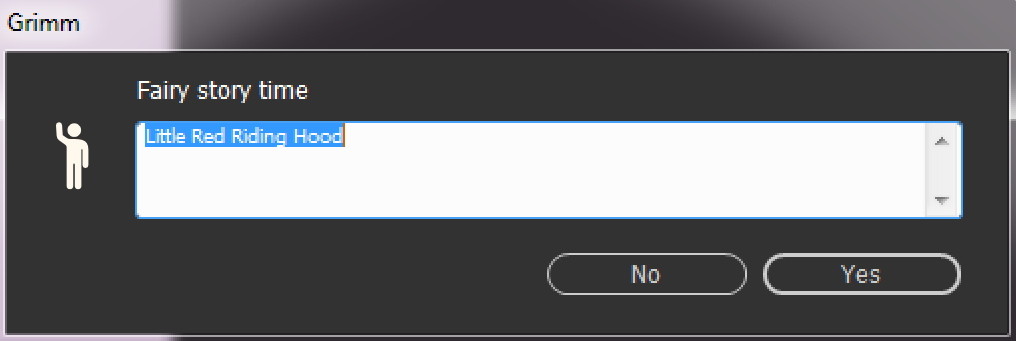| Name | Type | Default | Description |
| Return | int | != 0 Okay, 0 Cancel | |
| str | String or char* | - | When opening, the passed text will be used as the initial text of the entry field of the dialog. After accepting the dialog, the text contains the content of the entry field. In the case of parameter type char * the parameter must be a variable that is large enough to accommodate the expected result. |
| label | String or char* | - | Short caption of the entry field |
| title | String or char* | "Question" | Window title |
| okay | String or char* | "Okay" | Caption of the Okay button |
| cancel | String or char* | "Cancel" | Caption of the Cancel button |
| multiline | int | 1 | Is the edit field of the dialog to contain several lines? If the field can contain several lines, the return button will not accept the dialog but insert a new line instead. In this case the dialog may only be ended by a mouse-click. |
| maxchars | int | 0 | max. input length (str must allocated with at least one more by with 1 byte more for the terminating 0!) |

int main ()
{
char str[2048];
strcpy (str, "Little Red Riding Hood");
askstring (str, "Fairy story time", "Grimm", "Yes", "No");
return 0;
}
String instead of char *
int main()
{
String str = string::alloc("Rötkäppchen");
String label = string::alloc("Märchenstunde");
String title = string::alloc("Grimmig");
String yes = string::alloc("Ja");
String no = string::alloc("Nein");
askstring (str, label, title, yes, no);
showmessage(str);
string::release(str);
string::release(label);
string::release(title);
string::release(yes);
string::release(no);
}
Parameter maxchars from version 1.3.4 (R172)
 comet.dialog.askStr
comet.dialog.askStr